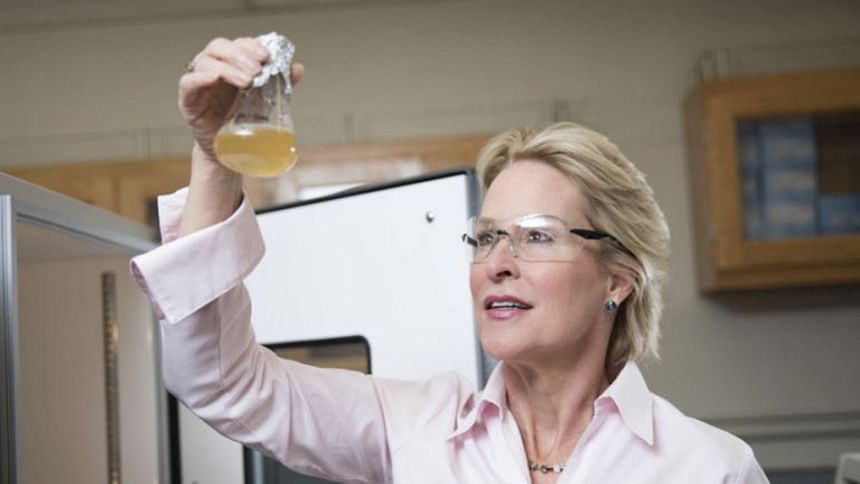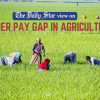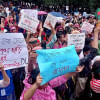Women scientists still 'undervalued' despite twin Nobel wins

With two Nobel prize winners in as many days, women scientists have welcomed the research community "waking up" to the feats of their female peers, but insist they remain underpaid and undervalued compared to men.
On Tuesday, Canadian scientist Donna Strickland became just the third woman in history to win the Nobel Physics Prize. Twenty-four hours later, US biochemist Frances Arnold was awarded the chemistry prize, only the fifth woman to receive the honour.
"It feels like the world is waking up to the ingenuity of women scientists," Jess Wade, a physics professor at Imperial College London told AFP.
"It is an honour to be working in science at the same time as such incredible and inspirational women."
Despite the relatively strong showing at the Nobels this year -- historically, just 19 of more than 600 science laureates have been female -- others pointed out several persistent barriers for women in the world of science.
"Things are much better than they were decades ago, but we still have a long way to go," said Meg Urry, professor of physics at Yale University.
"Women starting out in physics in college already notice they are being treated differently than men, and for women of colour it is even worse."
Indeed, while almost exactly half of science PhDs in the United States last year were submitted by women, for chemistry just 39 per cent were.
For physics, that figure dropped to 18 per cent, according to the American Physics Society.
Roisin Owens, biochemical engineer at the University of Cambridge, said institutions need to do more to fix what she called the "leaky pipeline" of women dropping out of science for reasons men are less likely to encounter.
"There are these tremendous women scientists who are almost equal numbers in these fields, then all of a sudden we get to professors and it's down to 30 percent or in some places 10 percent," she told AFP.
Although she welcomed the acclaim received by Strickland and Arnold this week, "people should resist the temptation to think that these prizes are being given now 'simply because they are women'."
'Incredibly difficult'
"This type of recognition should be considered the norm, and even something to be improved upon," Owens added.
Strickland, despite her illustrious career and work on short-pulse optical beams that is now used in laser eye surgery, is still a junior professor at the University of Waterloo in Ontario.
She didn't even have a Wikipedia page before Tuesday's win, as one editor at the online encyclopaedia deemed her insufficiently notable to merit an entry.
Wade has actually spent the last year creating more than 300 Wikipedia pages for women scientists she felt deserved greater recognition.
"It's been great -- they've been viewed by over 200,000 people and lots of people around the world have started their own editing," she said.
The last woman before Strickland to win the physics prize, theoretical physicist Maria Goeppert-Mayer, was forced to work for years at US universities for free, as her husband was also a scholar.
"It was incredibly difficult for women to work in science, and that's only changing now," said Owens.
'Consistently underestimated'
According to Jennifer Curtis, associate professor of physics at the Georgia Institute of Technology, since many scientific fields only truly opened up to women in the last 40 years, we may still be witnessing a time-lag when it comes to science prizes -- which typically come at the end of an individual's career.
"The time scale is about right now, and one might expect to see more female nominees if not now, then in the near future," Curtis said.
"The key now is to address the inertia in the system, which may in part be determined by who is sitting on the committees and what their exposure is to women."
For Urry, who studies supermassive black holes, being a women in scientific research remains "tough", even in 2018.
"Of course it is hard to examine the experimental data of your own life," she said.
"But I have seen other women consistently underestimated, undervalued, underappreciated, underpaid, and I suspect the same has happened to me."

 For all latest news, follow The Daily Star's Google News channel.
For all latest news, follow The Daily Star's Google News channel. 








Comments